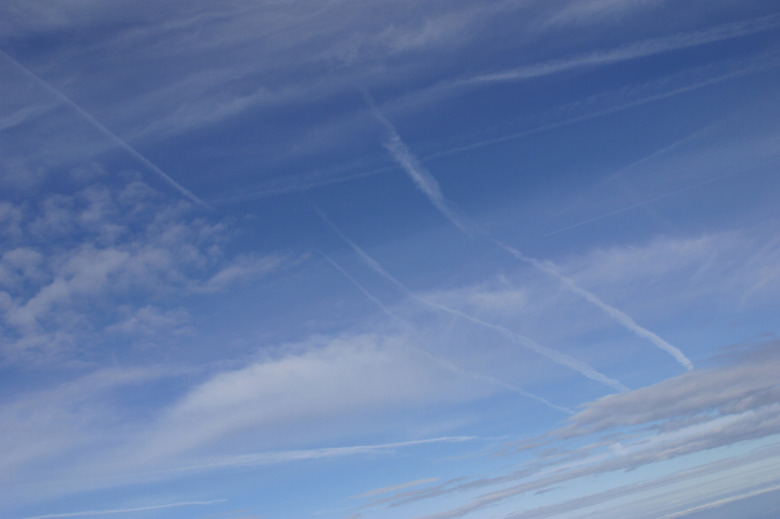How To Stop Water From Evaporating
Evaporation occurs when molecules near to the surface of a liquid acquire enough energy to break the forces of attraction that pull them toward other molecules in the liquid. They acquire this energy because molecules in liquids are constantly moving about and crashing into each other. When they crash, they exchange energy. However, the exchange is not always equal; sometimes one molecule gets a lot more energy than it loses and "bounces" out into the air above. Stopping evaporation is then a question of restricting the energy available to the water and lowering its exposure to dry air.
Step 1
Cool the water down or limit its exposure to heat by keeping it in the shade, adding ice or cooling with refrigerated pipes. This lowers the kinetic energy available to the water molecules, which slows the evaporation rate. With a large body of water you can do this by planting trees around the perimeter or stretching a shade-providing-canopy over the water.
Step 2
Keep the water in a container with as little surface area as possible. Only molecules near the surface can evaporate, so the smaller the surface area the lower the evaporation rate. Containers that are deep and narrow or bottle-shaped are best for this.
Step 3
Put a cover over the surface if possible, either a rigid lid or a floating cover as is used in swimming pools. This either limits the surface's contact with the air or creates a pocket of trapped air over the water. This soon becomes dense with water-vapor molecules and will not accept further molecules as readily.
Step 4
Reduce the airflow over the water by positioning windbreaks such as hedges or trees around it. When water evaporates it forms a moist layer of air over the surface, lowering the capacity of the air to accept more water molecules from the liquid. Moving air draws water vapor away from the area over the surface of the water and replaces it with drier air, increasing evaporation.
Step 5
Pour an impermeable, floating liquid such as vegetable oil into the water. A thin layer of oil will float to the surface and prevent water molecules from making contact with the air. However, in many circumstances it is not appropriate to use oil. In these cases use a special anti-evaporation compound that is not harmful to the environment.
References
Cite This Article
MLA
Milner, Will. "How To Stop Water From Evaporating" sciencing.com, https://www.sciencing.com/stop-water-evaporating-8719492/. 24 April 2017.
APA
Milner, Will. (2017, April 24). How To Stop Water From Evaporating. sciencing.com. Retrieved from https://www.sciencing.com/stop-water-evaporating-8719492/
Chicago
Milner, Will. How To Stop Water From Evaporating last modified March 24, 2022. https://www.sciencing.com/stop-water-evaporating-8719492/
